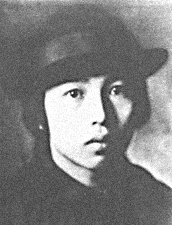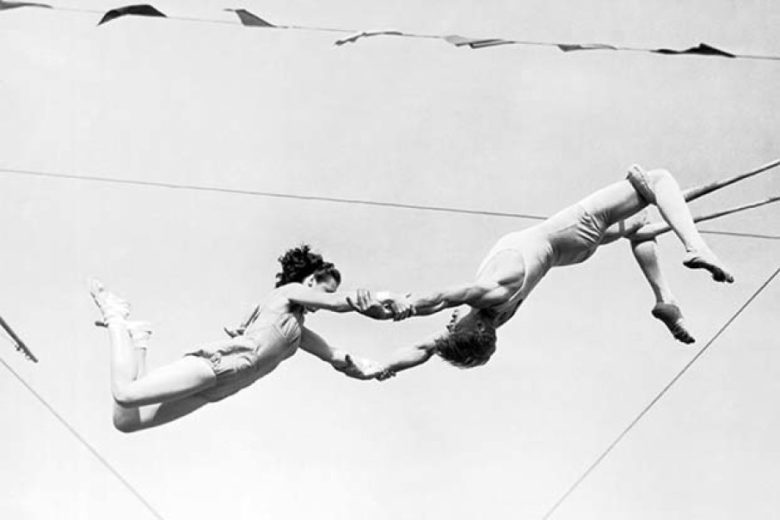Circus
(translated by Ry Beville)
There have been however many eras
And there has been brown war
There have been however many eras
And in the winter gales have blown
There have been however many eras
The one here this evening, in its prime
The one here this evening, in its prime
From the circus tent’s lofty beam
A solitary trapeze artist swings
A barely visible trapeze artist swings
Hanging his arms while upside down
Beneath the dirty cotton canopy
Yuahhn Yuyohhn Yuyayuyon
A white lamp burning nearby
Exhales its breath of cheap ribbons
The spectators, all of them sardines,
With oyster shells of ululating throats
Yuahhn Yuyohhn Yuyayuyon
Darkness beyond the tent the darkest dark
The evening stretches on endlessly late
The nostalgia of him in his little parachute
Yuahhn Yuyohhn Yuyayuyon
from Poems of the Goat

Born in 1907 Nakahara Chûya was one of the most gifted and colourful of Japan’s early modern poets. A bohemian romantic, his death at the early age of thirty, coupled with the delicacy of his imagery, have led to him being compared to the greatest of French symbolist poets.
Since the Second World War Nakahara’s stature has risen, and his poetry is now ranked among the finest Japanese verse of the 20th century. Influenced by both Symbolism and Dada, he created lyrics renowned for their songlike eloquence, their personal imagery and their poignant charm.
Translator: Ry Beville graduated from the University of Notre Dame (B.A.) and UC Berkeley (Phd), and studied Japanese poetics at the University of Tokyo. He has translated Nakahara Chûya in three volumes: Poems of the Goat (2002), Poems of Days Past (2005), and Uncollected Poems (2007). He also created the Haikuism app. His most recent publication is the novel, What Remains. He is president and CEO at Brightwave Media, and a professor at UC Berkeley.
originally published in Ping-Pong Journal of Art and Literature


